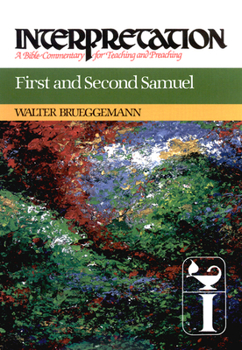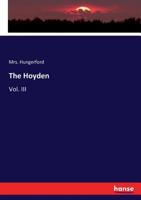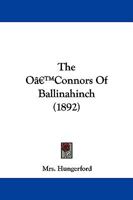First and Second Samuel (Interpretation, a Bible Commentary for Teaching and Preaching)
(Part of the Interpretation: A Bible Commentary for Teaching and Preaching Series)
Select Format
Select Condition 
Book Overview
With critical scholarship and theological sensitivity, Walter Brueggemann traces the people of God through the books of Samuel as they shift from marginalized tribalism to oppressive monarchy. He carefully opens the literature of the books, sketching a narrative filled with historical realism but also bursting with an awareness that more than human action is being presented.
Interpretation: A Bible Commentary for Teaching and Preaching is a distinctive resource for those who interpret the Bible in the church. Planned and written specifically for teaching and preaching needs, this critically acclaimed biblical commentary is a major contribution to scholarship and ministry.
Customer Reviews
Rated 5 starsPerry Stone is on point
Perry Stone explains the concepts in a plain and simple manner so that what you read in the Bible is understandable and clear. He is one of the few Bible Teachers in our times who goes into the history of Bible Prophecy roots and connecting the dots to our times looking forward to our fast approaching futures
2Report
Rated 5 starsLook into the future
If you are like me, and got your introduction to prophecy of the Second Coming from Hal Lindsay and The Late Great Planet Earth, you need to read this book. It will re-orient your thinging on End-Times prophecy. Perry is not the only prophecy teacher rethinking the scenerio of the End Times, but one of the best for making it plain and simple.
2Report
Rated 5 starsPerry Stone
Stone absolutely knows God's Word. Anyone who says he doesn't hasn't attended one of his services or heard his tapes. He backs everything he says.
2Report




























